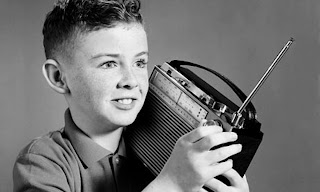Is social media insulating each of us in an echo chamber that amplifies and reflects back at us opinions we already hold and protects us from ideas which might challenge us? Yes, but only if you’re doing it right. Personally, I’m a big fan of confirmation bias – the process whereby you misinterpret data in order to validate what you believe to be true, even though it’s not, and I was right all along – and given the choice, I’d prefer to return to the good old days before the internet, when we didn’t realise how much we all hated each other. In all probability such an outcome could be achieved only by the destruction of human civilisation, and I don’t want to destroy the world, just to ignore most of it.
The stark truth is that far from cocooning us, social media exposes us to a wide variety of previously unencountered people and opinions. These people are invariably weird, and their opinions are horrible. What pundits fail to take into account – but is obvious to normal people – is that it’s nice to be in a bubble. It’s only natural to view those who don’t share your beliefs as intellectually defective and morally degenerate, and to avoid them at all costs. Who wants to spend time arguing with a bunch of idiots?
In the real world it’s relatively easy to steer clear of individuals and ideas we find uncongenial. For example, if you’re on a train, and there’s a discarded newspaper on the seat next to you, and you happen to despise that paper – for the sake of convenience let’s call it the Daily Mail – and believe it to be a putrid repository of deceitful trash, you might think, “Hmm, I’d better not read that paper, because I know it will enrage me, and probably ruin my day.” So, you’d leave it alone. Unless you have absolutely nothing else to read, listen to, or look at – and what kind of fool gets on a train these days without a colossal archive of digital entertainment to hand, or even, if you’re an old fool, an actual printed book or magazine?
Let’s take another example. Perhaps you have a colleague at work who holds bizarre beliefs – that the earth is flat, or that people should vote for Trump – and you’ve established there’s very little chance you’ll get along together. You’d probably want to avoid that person. They’re unlikely to be in your social circle, and you wouldn’t seek out their company, or solicit their offensive opinions. You certainly wouldn’t challenge them to a public argument or follow them home and yell insults through their letterbox or trail them to a location where they meet up with their equally misguided friends, and gatecrash the gathering in order to explain how deluded they all are. And yet that’s what we do online. Why? Because it’s easy.
To accuse us of living in an online bubble is to overlook the fact that in real life we exist in bubbles that isolate us far more effectively than our online ones, which are at perpetual risk of puncture every time we engage with people we’d normally shun. You might claim it does us good to be confronted by these repulsive strangers and their dreadful views, but that would be true only if we’d learned how to behave like mature adults on the internet. Dream on.
Meanwhile, back at the office, here comes that ghastly colleague. What if they try to talk to you? But nobody’s forcing you to discuss things you already know you don’t agree about. And even if there are good reasons why you can’t avoid spending time with this approaching dickhead (which is also what the dickhead is thinking about you) there must be something innocuous you could talk about, like fish or concrete.
My point is that when we’re online, we’re too connected for our own good. In the real world, we can usually sidestep the majority of hostile confrontations. It takes a bit of judicious cowardice, and a certain amount of lying and self-deception, but it can be done. And if it can’t, and we find ourselves unavoidably thrust together with people we don’t like, we can always try to focus on some aspect of our common humanity. But nobody is human on the internet. That’s the problem. Which is why my advice for a happy online existence is STAY IN YOUR BUBBLE.
The stark truth is that far from cocooning us, social media exposes us to a wide variety of previously unencountered people and opinions. These people are invariably weird, and their opinions are horrible. What pundits fail to take into account – but is obvious to normal people – is that it’s nice to be in a bubble. It’s only natural to view those who don’t share your beliefs as intellectually defective and morally degenerate, and to avoid them at all costs. Who wants to spend time arguing with a bunch of idiots?
In the real world it’s relatively easy to steer clear of individuals and ideas we find uncongenial. For example, if you’re on a train, and there’s a discarded newspaper on the seat next to you, and you happen to despise that paper – for the sake of convenience let’s call it the Daily Mail – and believe it to be a putrid repository of deceitful trash, you might think, “Hmm, I’d better not read that paper, because I know it will enrage me, and probably ruin my day.” So, you’d leave it alone. Unless you have absolutely nothing else to read, listen to, or look at – and what kind of fool gets on a train these days without a colossal archive of digital entertainment to hand, or even, if you’re an old fool, an actual printed book or magazine?
Let’s take another example. Perhaps you have a colleague at work who holds bizarre beliefs – that the earth is flat, or that people should vote for Trump – and you’ve established there’s very little chance you’ll get along together. You’d probably want to avoid that person. They’re unlikely to be in your social circle, and you wouldn’t seek out their company, or solicit their offensive opinions. You certainly wouldn’t challenge them to a public argument or follow them home and yell insults through their letterbox or trail them to a location where they meet up with their equally misguided friends, and gatecrash the gathering in order to explain how deluded they all are. And yet that’s what we do online. Why? Because it’s easy.
To accuse us of living in an online bubble is to overlook the fact that in real life we exist in bubbles that isolate us far more effectively than our online ones, which are at perpetual risk of puncture every time we engage with people we’d normally shun. You might claim it does us good to be confronted by these repulsive strangers and their dreadful views, but that would be true only if we’d learned how to behave like mature adults on the internet. Dream on.
Meanwhile, back at the office, here comes that ghastly colleague. What if they try to talk to you? But nobody’s forcing you to discuss things you already know you don’t agree about. And even if there are good reasons why you can’t avoid spending time with this approaching dickhead (which is also what the dickhead is thinking about you) there must be something innocuous you could talk about, like fish or concrete.
My point is that when we’re online, we’re too connected for our own good. In the real world, we can usually sidestep the majority of hostile confrontations. It takes a bit of judicious cowardice, and a certain amount of lying and self-deception, but it can be done. And if it can’t, and we find ourselves unavoidably thrust together with people we don’t like, we can always try to focus on some aspect of our common humanity. But nobody is human on the internet. That’s the problem. Which is why my advice for a happy online existence is STAY IN YOUR BUBBLE.





